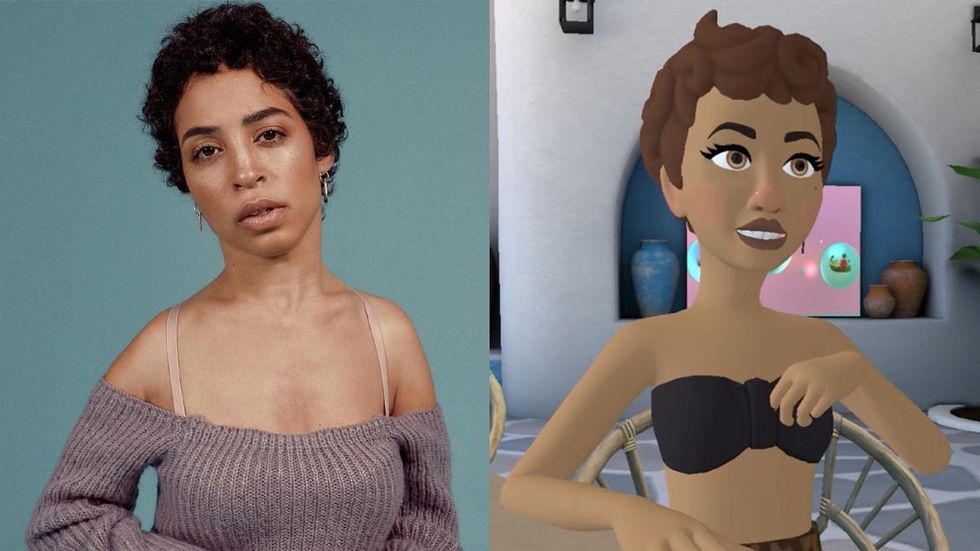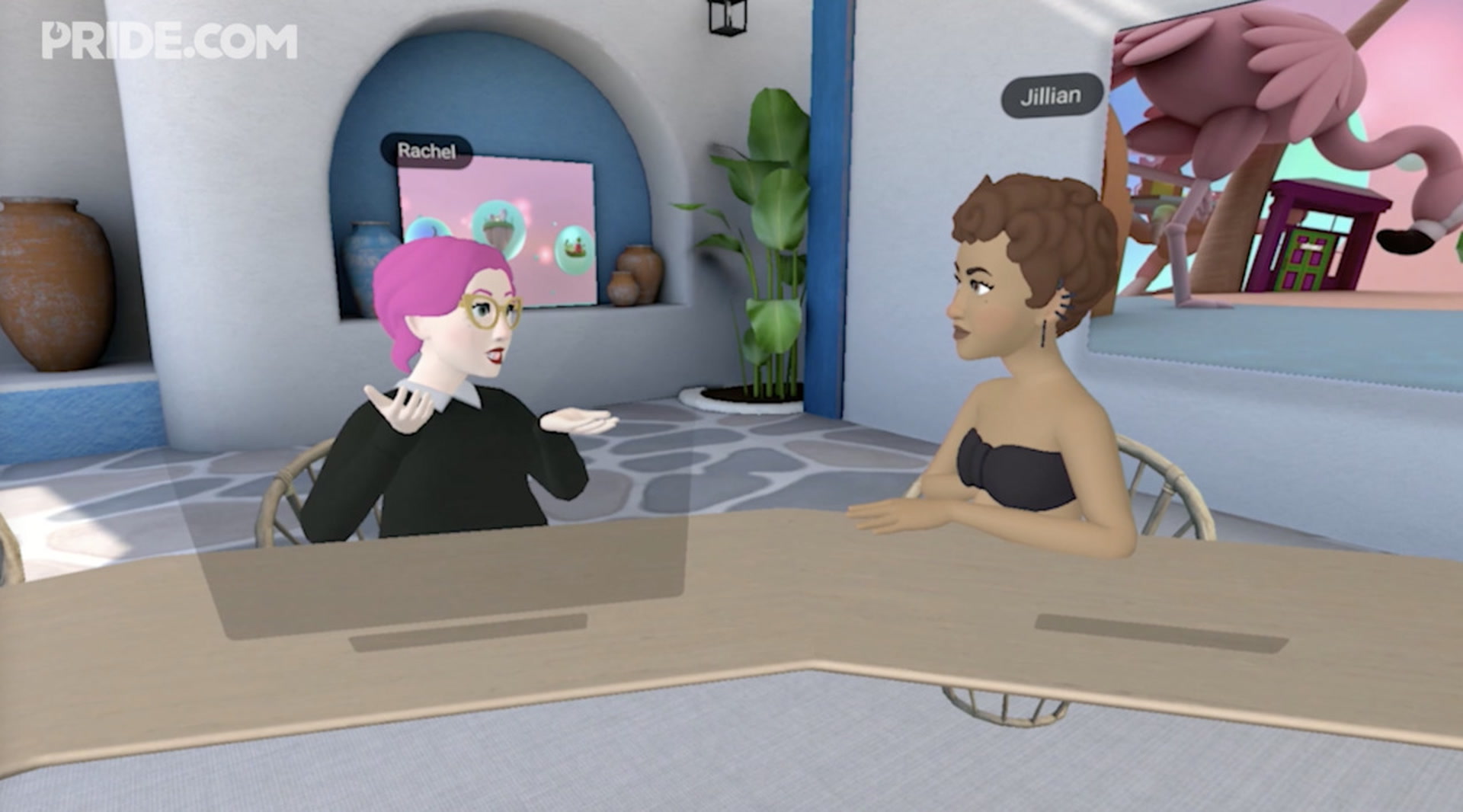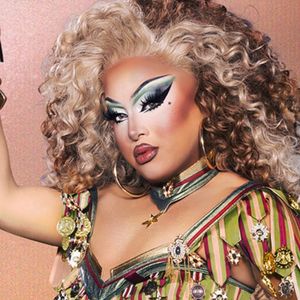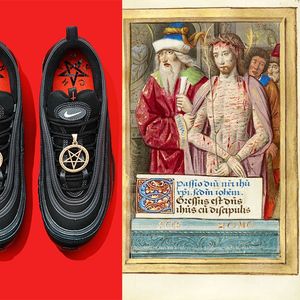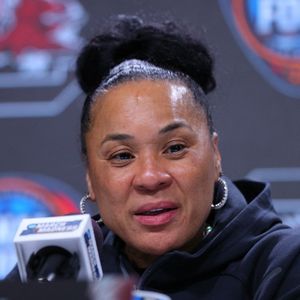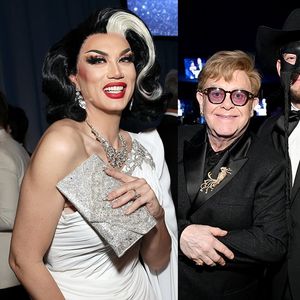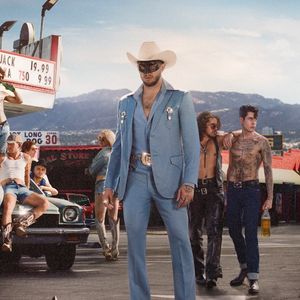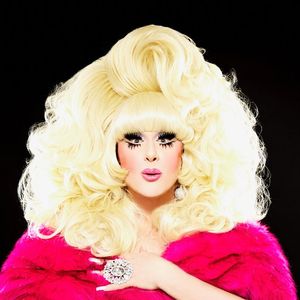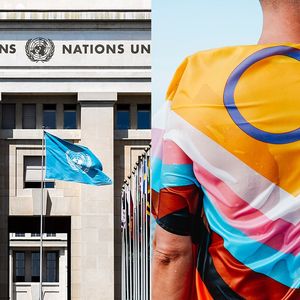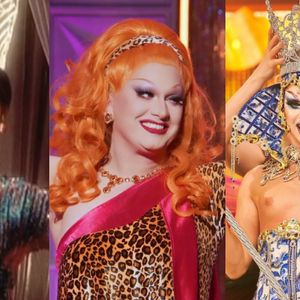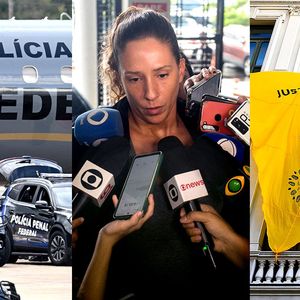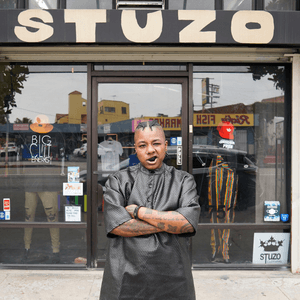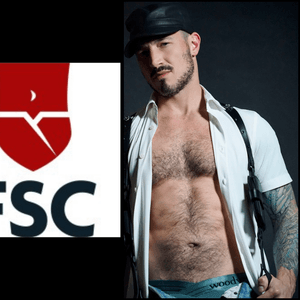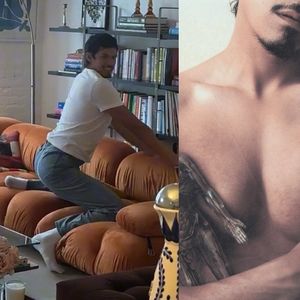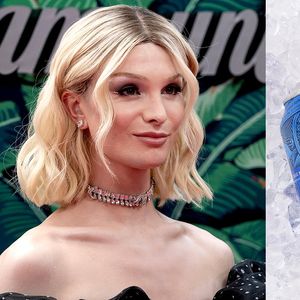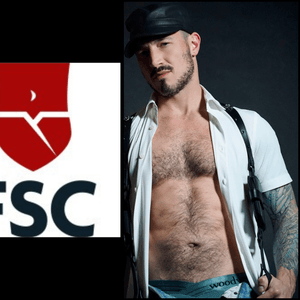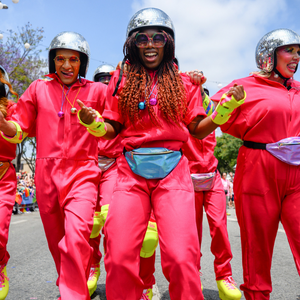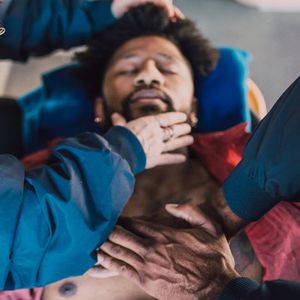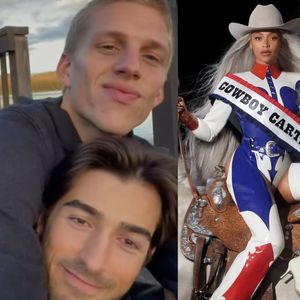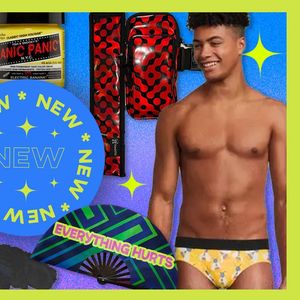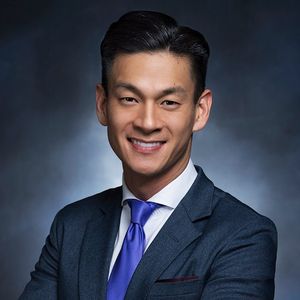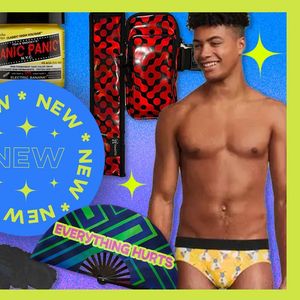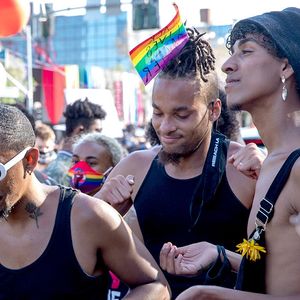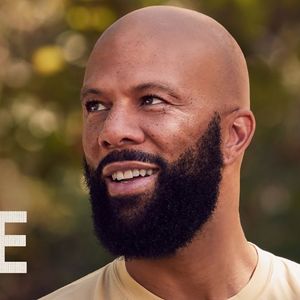Jillian Mercado is no stranger to blazing trails when it comes to representation. But that just comes naturally to the multihyphenate queer, disabled, Latinx activist. Perhaps you know her best as Maribel onThe L Word: Generation Q or from owning runways for designers like The Blonds at New York Fashion week. There’s also her editorial campaigns in Glamour and Cosmopolitan — and even on Beyoncé’s official site.
Now she’s blazing a new trail and that’s into the Metaverse as part of “Tercera Cultura” the latest chapter in the Metaverse Culture Series. Previous iterations have focused on Black culture, women, Muslim creators, and Pride Unbound experiences centered on the experience of LGBTQ+ people. This time around, Meta partnered with Puerto Rican next-gen multimedia artist COVL to create “Nuevo Norte” (New North), a mixed reality art installation that can be experienced in virtual reality (VR) within Meta’s Horizon Worlds. It also debuted as a 2D mural plus augmented reality (AR) extension on the ground at Art Basel Miami.
A scenic view of Nuevo Norte

Courtesy of Meta
It was a perfect fit for Mercado, who is no stranger to being a proud representative for her people across the many intersections that make up her complex and unique identity. “It’s just wonderful to have a place at the table and to talk about technology in a way where it’s inclusive in a way where everyone is given a mic to represent themselves in the most authentic way,” she tells PRIDE during our interview in the Metaverse.
One of those identities, she confesses, is that she’s “such a nerd at heart,” so she jumped at the chance to hop into the virtual world. “Having the experience of being one of the first group of people to get to experience this and to see the future being present in my face right now, quite literally, and being inside of it, it’s beautiful,” she says.

Courtesy of Meta
The Nuevo Norte VR experience includes a handful of beautifully designed and brightly colored locales to visit, each of which pays homage to different parts of Latin culture. This includes a Cafecito (cafe) and Discoteca (dance club), which Mercado confesses was her favorite place to visit as it reminded her of the powerful sense of community she experienced in the New York queer club scene. “As a New Yorker, I was very much part of the New York nightlife scene when I was younger. So I went to almost too many queer parties in New York,” she laughs.
“I remember — personally speaking — just feeling so safe in those kinds of parties and knowing that my people were there and that we all had each other and that if something happened, it would be like an instant army,” she shared, likening that to the feeling she experienced in Nuevo Norte. “It was such a beautiful heartwarming moment that it brought me back to those times where I was at The Standard or The Box or in Brooklyn somewhere — where those spaces were very community-based. And I missed that a lot. So seeing that very much reminded me that it still can exist even today.”

Herring & Herring
It’s that opportunity for closeness and community that excites Mercado about the Metaverse and its future. That and how it can actually speak to the kind of specific representation that marginalized people have struggled and fought for, for so long, and have rarely truly achieved.
“I would never, and I quote never, be a part of something where someone’s just checking off a box. It has to really be worked out. Because we’ve waited long enough. I don’t have time for people to put me as a second choice,” she says.
And for Mercado, that means only being involved with projects where accessibility and representation for disabled people is also a priority. “Unfortunately, we live in an ableist society, we live in a place where people are very ignorant to other people’s needs,” she says. “I always say it’s fine. If you have a part that you don’t know — I can’t possibly know every single disability that’s out there, because there’s way too many, but I’m willing to learn about it, I’m willing to have this person educate me so that I can be a better service for them in the future with the tools that I have. So, it’s been so nice to be able to talk to people and hear people in the Metaverse who are actually behind the scenes and making sure that our accessibility needs are met.”

Martin L. Brown
Mercado points to a small but significant example. “If you want your avatar to have a hearing aid because you have one, that tiny little detail makes such a difference, emotionally speaking, mentally speaking, so that they can feel like they are a part of the conversation as well. That they’re valid and, and their emotions are being heard and being met.”
“We’re just at the beginning stages with Metaverse, and I can, hands down, say that even things that I’ve spoken about have been implemented, or are being worked on currently. So that only brings me hope,” she shares.
For those first entering the Metaverse, Mercado does offer some advice. “Take your time creating your avatar because there’s a lot to go through. And the details about it are so important. And just to know that you have the opportunity to create yourself in a digital space. That was unheard of five years ago.” And of course, once that’s done, it’s tome to go find your community. “I went to a few cute queer spaces here and it was amazing,” she recalls. “Even if you don’t identify with the community, just go, you’ll make a great ton of friends. And we’re such an open community, so you know, come on over.”
Watch PRIDE’s empowering full conversation with Jillian Mercado below.
PRIDE stepped into the Metaverse to chat with the actor, model, and …
From Your Site Articles
Related Articles Around the Web
